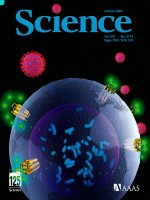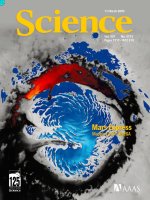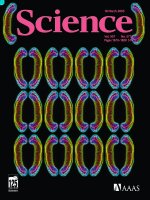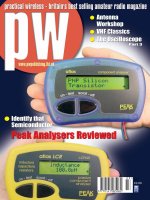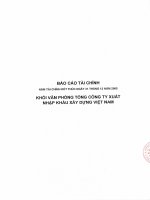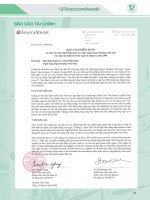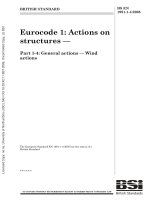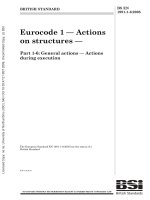31 9100 9073 e 2005 03
Bạn đang xem bản rút gọn của tài liệu. Xem và tải ngay bản đầy đủ của tài liệu tại đây (177.72 KB, 5 trang )
DRAWING/DOCUMENT STATUS
A
FOR REFERENCE
2006-04-10
First issue
Steenmeyer
DATE
DESCRIPTION
Bearb.
Coord.
Rev.
Liedtke
Sudhoff
Geprüft
Checked
APPD.
PROJECT :
CAMAU 1 750MW COMBINED CYCLE POWER PLANT
OWNER :
OWNER’S ENGINEER :
PETRO VIETNAM
CPMB
CONTRACTOR :
CONTRACTOR’S ENGINEER :
LILAMA CORPORATION
FICHTNER
SUBCONTRACTOR’S NAME :
SUBCONTRACTOR’S SUPPLIER :
s
POWER GENERATION
DRAWING TITLE :
System Description Hydraulic Oil For Fuel Oil
PKZ
UAS
Contents Code
Ursprung/Original
Reg. No.
UNID
Urspr.-PKZ-Nr.
Orig.-PC
Ursprung-Nr./Original-No.
Projekt/Project
gezeich.
Drawn
bearb.
Coord.
geprüft
Checked
Abtlg.
Dept.
PKZ/PC
Datum
Date
Name
06-04-10
STEENM
06-04-10
LIEDTKE
06-04-10
SUDHOFF
P415
sgd.
s AG
POWER GENERATION
CA MAU 1 CCPP
VIT154
Maßstab
Scale
UA/DCC
Type
Inhaltskennzeichen
Contents Code
N/A
A4
Benennung/Title
System Description Hydraulic Oil
For Fuel Oil
Dienstst./Dept.
P415
UNID
423216774
XS00
MBX
Zähl.-Nr.
Reg.-No.
Index/Rev.
355057
Version
A
Blatt-Nr./Page-No.
CM1-L1-M-MBX.08-355057
Erstellt mit/designed with
0 of 4
Ersatz für
Supersedes
Gas Turbine
Description of Auxiliary Systems
Hydraulic Control Equipment
Hydraulic Oil for Fuel Oil
Refer also to:
List of Control Settings (SREL)
List of Measuring Instruments
List of Electrical Loads
Equipment List
P+I Diagram, Fuel Oil
Hydraulic Oil System
P+I Diagram, Hydraulic System
P+I Diagram, Hydraulic Oil for Fuel Oil System
3.1-0210
3.1-0220
3.1-0230
3.1-0240
3.1-4010
3.1-9000
3.1-9010
3.1-9110
The control system proper—i.e. the speed controller,
load controller, temperature controller, the startup and
shutdown controller, together with the hydraulic oil supply
station which supplies the valve actuators—is described
elsewhere.
FO HÖ-VB-SSV
PO FL ESV
MBN23AA051
MBN23AA051
Premix burners
VB
Settings, limits and measuring ranges of the items of
equipment listed here are given in the List of Measuring
Instruments, Equipment List and List of Control Settings
(SREL). This description only gives guideline values.
FO feed line
Ölvorlaufleitung
Diffusion burners
DB
FO
DO FL SSV
HÖ-DBVL-SSV
HÖ-DBVL-SV
FO DO FL CV/ESV
MBN14AA051
MBN14AA051 MBN14AA151
MBN14AA151
The reproduction, transmission or use of this document or its
content is not permitted without express written authority.
Offenders will be liable for damages. All rights, including
rights created by patent grant or registration of a utility model
or design, are reserved.
Overview
The valve control devices position and switch the
valves by controlling the hydraulic oil supplied to the valve
actuators as appropriate, to provide the required fuel flow
for the various operating modes of the gas turbine.
The configurations of the emergency stop and control
valves are illustrated in Fig. 1, valve designations are as
follows:
−
FO PO FL CV/ESV:
Fuel oil premix feed line control valve with emergency
stop function
−
FO DO FL CV/ESV:
Fuel oil diffusion feed line control valve with emergency
stop function
−
Class: RESTRICTED
FO return line
Ölrücklaufleitung
This description covers the actuators of the safety
shutoff devices (emergency stop valves) and the control
valves in the fuel oil system.
The valve actuators are essentially comprised of the
hydraulic cylinder and the associated control devices which
are integrated into the actuator housing. This results in
compact actuator units.
FO DO RL CV:
Fuel oil diffusion return line control valve with shutoff
function
Fig1:
FO
DO RL CV
FO DO RL ESV
HÖ-DBRL-SSV
HÖ-DBRL-SV
MBN53AA151
MBN52AA051
MBN53AA151 MBN52AA051
SGT-1000F, SGT5-3000F, SGT5-4000F, and
SGT6-4000F Fuel Oil Valves
PO: Premix Operation, DO: Diffusion
Operation
The KKS identifiers of the control and emergency stop
valves and the respective function levels of the associated
actuator, measuring and control devices are listed in
Table 1.
FO PO FL CV/ESV
MBN23AA151
Function
level
Actuator
devices
MBX87
FO DO FL CV/ESV
MBN14AA151
MBX88
FO DO RL CV
MBN53AA151
MBX86
FO PO FL ESV
MBN23AA051
MBX77
FO DO FL ESV
MBN14AA051
MBX75
FO DO FL ESV
MBN52AA051
MBX79
Valve
KKS
Emergency stop
valve
−
FO PO FL ESV:
FO premix feed line emergency stop valve
Table 1:
−
FO DO FL ESV:
Fuel oil diffusion feed line emergency stop valve
Valve Actuators—General
−
FO DO RL ESV:
Fuel oil diffusion return line emergency stop valve.
In each of these cases, an emergency stop valve and a
control valve are connected in series. As a matter of
principle, the control valves are located downstream of the
emergency stop valves.
Siemens AG
Power Generation
HÖ-VB-SV
FO PO FL CV/ESV
MBN23AA151
MBN23AA151
Allocation of KKS Designations
The basic configuration and materials of the actuators
used with all six control and emergency stop valves
(MBX75/77/79/86/87/88AS002) are identical.
The actuator is mounted on the valve stem flange. It is
comprised of a hydraulic cylinder and a spring which closes
the valve and is integrated into the actuator unit. The piston
area is identical in the two cylinder plenums and pressure
3.1-9100-9073/1
0305E-X
Gas Turbine
Description of Auxiliary Systems
is applied from one side only. The valve can only be
opened when the actuator is supplied with hydraulic fluid
under pressure. The spring in the actuator applies the force
necessary to close the valve. The piston rod is made of
stainless steel and has a hard chromium finish.
Two inductive position sensors (MBN14/23/53AA151B01/B02) with integrated electronics and plug connection
are mounted on the piston rod of each actuator.
The OPEN and CLOSED positions of the emergency
stop valves are each monitored by two inductive position
limit switches mounted on the actuator piston rods
(MBN14/23AA051-S11, -S12, -S21, -S22).
The actuators of the two feed line control valves are of
an identical design. The same applies to the actuators of
the two emergency stop valves in the feed lines.
The reproduction, transmission or use of this document or its
content is not permitted without express written authority.
Offenders will be liable for damages. All rights, including
rights created by patent grant or registration of a utility model
or design, are reserved.
Control devices are implemented in the actuator
housings in line with the respective task requirements and
are explained in the following text.
Control Devices—General
Each of the control devices (MBX75/77/79AS001 and
MBX86/87/88AS001) is connected to the hydraulic supply
station by one feed and one return line.
The two control devices (MBX87/88AS001) associated
with the feed line control valves are identical and therefore
described jointly. By the same token, the control devices
MBX75/77AS001 associated with the actuators of the feed
line emergency stop valves—FO DO FL ESV
(MBN14AA051) and FO PO FL ESV (MBN23AA051)—are
also identically described in the following text.
Each of the control devices is protected by a pressure
filter (MBX75/77/79/86/87/88AT002) with a 10 µm mesh
size. An optical fouling display (MBX75/77/79/86/87/88CP501) is provided to permit monitoring of the fouling of
each filter, individually.
A color-coded indication is displayed locally if the
response pressure of the fouling monitor is exceeded.
Class: RESTRICTED
Control Devices of the Feed Line Control
Valves
The control devices (MBX87/88AS001) of the feed line
control valves are each comprised of a servo valve
(MBX87AA101 / MBX88AA101), a 2-way cartridge valve)
MBX87AA052 / MBX88AA052, a solenoid pilot valve
MBX87AA002 / MBX88AA002 as well as the measuring
points (MBX87CP401 - MBX87CP404 and MBX88CP401 MBX88CP404) and a dedicated pressure filter
(MBX88AT002 / MBX87AT002).
Siemens AG
Power Generation
Hydraulic Control Equipment
Hydraulic Oil for Fuel Oil
In normal operation, the solenoid pilot valve
(MBX87AA052 / MBX88AA002) is energized. As a result,
the upper plenum of the spring-loaded control piston in the
cartridge
valve
(MBX87AA052 / MBX88AA052)
is
pressurized, thus closing the cartridge valve and
preventing the hydraulic fluid from draining from the lower
plenum of the actuator through the cartridge valve and into
the upper actuator plenum and/or to the return line to the
tank.
In this condition, actuator piston travel can be controlled
by
the
two-stage
servo
valve
(MBX87AA101 /
MBX88AA101). This servo valve is comprised of an initial
pilot stage with a permanent magnet control motor (torque
motor), a hydraulic preamplifier (employing a nozzle
impingement plate system) and a second stage comprised
a spool-type control valve with four metering edges. The
second stage also functions as a hydraulic power amplifier.
The valve actuator, together with the control device, is
an integral component of the control circuit. The position
controller sends a positioning signal to the servo valve
(MBX87AA101 / MBX88AA101) in the form of a loadindependent current, which changes the flow of hydraulic
oil from the oil supply station at a level proportional to the
signal current, but with a much greater amplification. A
positive current at the controller output opens the fuel oil
control valve and a negative current closes it. The greater
the current, the faster the fuel oil control valve opens or
closes.
The hydraulic settings of the servo valve are such that
in the event of a loss of electric power supply (e.g. broken
wire) the fuel oil feed line control valve always assumes its
CLOSED position.
To open the valve, hydraulic oil is supplied to the lower
plenum via the metering edges of the second stage.
Upward piston travel compresses the closing spring and
displaces the hydraulic fluid from the upper plenum into the
return line to the tank.
To close the valve, a connection is opened between the
lower plenum and the upper plenum and/or tank return line
via the metering edges of the second stage. The valve is
closed by spring force, forcing hydraulic oil from the lower
plenum through the servo valve and into the upper plenum
and/or the return line to the tank. Actuator piston travel is
registered by two non-contact position sensors
(MBN14AA151-B01/B02
or
MBN23AA151-B01/B02).
These sensors output an analog current signal that is taken
as the actual position and fed back to the position
controller.
The FO DO FL CV/ESV and the FO PO FL CV/ESV are
components of the dual element shutoff device in the
supply line to the FO diffusion and FO premix burners,
respectively. In addition to controlling the amount of oil
3.1-9100-9073/2
0305E-X
The reproduction, transmission or use of this document or its
content is not permitted without express written authority.
Offenders will be liable for damages. All rights, including
rights created by patent grant or registration of a utility model
or design, are reserved.
Gas Turbine
Description of Auxiliary Systems
supplied, they are also used to rapidly and reliably shut off
the fuel mass flow to the FO burners when necessary.
wire) the fuel oil return line control valve always assumes
its OPEN position.
Closure of the control valve in the event of trip is triggered
by deenergizing solenoid pilot valve MBX87/88AA002
(deenergize-to-trip principle). Deenergization of the
solenoid pilot valve depressurizes the lower plenum,
allowing the spring to rapidly close the emergency stop
valve. Control oil acting on the actuator piston of the 2-way
cartridge valve is depressurized and flows back to the tank.
Hydraulic oil pressure generated by the spring
(MBX87AS002 / MBX88AS002) in the hydraulic cylinder
opens the spring-loaded control piston of the 2-way
cartridge valve and the hydraulic oil in the lower plenum
flows through the 2-way cartridge valve into the
depressurized space above the piston (upper plenum). The
spring force of the preloaded closing springs acting on the
control piston is so low that only a slight pressure
differential between connections A and B is required to
hold the 2-way cartridge valve closed. Consequently the 2way cartridge valve is capable of switching large oil flows at
low pressure drop, thus ensuring that the FO control valve
actuator achieves short closure times. The spring reliably
closes the control valve.
To increase control valve lift, the flow of hydraulic fluid
is directed across the metering surface of the second stage
into the lower hydraulic cylinder plenum. Upward piston
travel compresses the closing spring and displaces the
hydraulic fluid from the upper plenum into the tank. The
closing force for the actuator is generated by the spring, i.e.
the servo valve is actuated such that hydraulic oil is
displaced by spring force from the lower to the upper
plenum via the servo valve. Actuator piston travel is
registered by the non-contact position sensor. This sensor
outputs an analog current signal that is taken as the actual
position and fed back to the position controller.
Control Devices of the Return Line
Control Valve
The actuator for the FO DO RL CV (MBN53AA151) in
the return line of the fuel oil burner system includes the
control device (MBX86AS001). The latter, essentially
comprised of a servo valve (MBX86AA101), a pressure
filter (MBX86AT001) and two measuring points
(MBX86CP401/402/404).
Servo valve MBX86AA001 controls actuator piston
travel. It comprises a pilot stage with a torque motor and
hydraulic preamplifier and a second stage with a pilot valve
that has four metering edges. The second stage also
functions as a hydraulic power amplifier.
The valve actuator, together with the control device, is
an integral component of the control circuit. The position
controller sends a positioning signal to the servo valve in
the form of a load-independent current, which changes the
flow of hydraulic oil from the oil supply station at a level
proportional to the signal current, but with a much greater
amplification.
A positive current at the controller output opens the fuel
oil control valve and a negative current closes it. The
greater the current, the faster the fuel oil control valve
opens or closes.
Class: RESTRICTED
Hydraulic Control Equipment
Hydraulic Oil for Fuel Oil
The hydraulic settings of the servo valve are such that
in the event of a loss of electric power supply (e.g. broken
Siemens AG
Power Generation
Control Devices of the Feed Line
Emergency Stop Valves
The control devices of the feed line emergency stop
valve actuators (MBX75AS001 / MBX77AS001) are each
essentially comprised of one solenoid opening valve
(MBX75AA031 / MBX77AA031), one 2-way cartridge valve
(MBX75AA051 / MBX77AA051), one solenoid pilot valve
(MBX75AA001 / MBX77AA001), one pressure filter
(MBX75AT001 / MBX77AT001) as well as the measuring
points (MBX75CP401 - ... MBX75CP404 or MBX77CP401
- ... MBX77CP404).
To open the emergency stop valve, the solenoid pilot
valve (MBX75/77AA001) and the solenoid opening valve
(MBX75/77AA031) are energized, the latter, with a slight
delay.
Energizing the solenoid pilot valve (MBX75AA001 /
MBX77AA001) pressurizes the upper plenum of the springloaded piston in the cartridge valve (MBX75AA052 /
MBX77AA052), thus closing the cartridge valve and
preventing the hydraulic fluid from draining from the lower
plenum of the actuator through the cartridge valve and into
the upper actuator plenum and/or to the return line to the
tank.
Subsequent energizing of the solenoid opening valve
(MBX75AA031 / MBX77AA031) supplies hydraulic fluid to
the lower plenum. Upward piston travel compresses the
closing spring and displaces the hydraulic fluid from the
upper plenum into the return line to the tank.
Closure of the emergency stop valve (MBN14AA051/
MBN23AA051) in the event of trip, is triggered by
deenergizing solenoid pilot valve (MBX75AA001/
MBX77AA001)
(deenergize
to
close
principle).
Deenergization of the solenoid pilot valve depressurizes
the lower plenum, causing the spring to rapidly close the
emergency stop valve. Control oil acting on the actuator
plenums of the 2-way cartridge valves is depressurized and
3.1-9100-9073/3
0305E-X
flows back to the tank. Hydraulic oil pressure generated by
the spring in the hydraulic cylinder (MBX75AS002 /
MBX77AS002) opens the spring-loaded control piston of
the 2-way cartridge valve and the hydraulic oil in the lower
plenum flows through the 2-way cartridge valve into the
depressurized space above the piston (upper plenum). The
spring force of the preloaded closing springs acting on the
control piston is so low that only a slight pressure
differential between connections A and B is required to
hold the 2-way cartridge valve closed. Consequently, the 2way cartridge valve is capable of switching large oil flows at
low pressure drop, thus ensuring that the emergency stop
valve actuator achieves short closure times. The spring
reliably closes the emergency stop valve. When the trip
signal is received, the solenoid pilot valve (MBX75AA00/
MBX77AA001) and the solenoid opening valve
(MBX75AA03/
MBX77AA031)
are
simultaneously
deenergized. This interrupts the connection to the pressure
line. Fail-safe, rapid closure of the valve is, however,
ensured by deenergization of the solenoid pilot valve alone.
Control Devices of the Return Line
Emergency Stop Valve
The control device MBX79AS001 associated with the
emergency stop valve located in the fuel diffusion burner
system return line is essentially comprised of a solenoid
Hydraulic Control Equipment
Hydraulic Oil for Fuel Oil
valve MBX79AA002 required for opening and closing,
pressure filter MBX79AT002 and measuring points
MBX79CP401/402/404.
The OPEN and CLOSED positions of the emergency
stop valve MBP13AA051 are each monitored by two
inductive position limit switches located in the actuator unit
(MBN14/23AA051-S11, -S12, -S21, -S22).
Closing of the emergency stop valve is achieved by
deenergizing solenoid valve MBX79AA002 (deenergize to
close principle). The solenoid valve is equipped with a
closing spring which is compressed when the solenoid coil
is energized. Consequently the fail-safe emergency stop
valve is closed if voltage supply to the solenoid is
interrupted. When solenoid valve MBX79AA002 is
energized, hydraulic fluid flows into the lower plenum and
displaces the piston upward. This displaces hydraulic fluid
in the upper plenum into the return line. This interaction
opens the emergency stop valve. The closing spring of the
emergency stop valve is now compressed. Deenergization
of the solenoid valve depressurizes the lower plenum,
causing the closing spring to rapidly close the emergency
stop valve. In the event of a trip, hydraulic oil present in the
lower plenum flows into the upper plenum and/or the return
line to the tank.
Class: RESTRICTED
The reproduction, transmission or use of this document or its
content is not permitted without express written authority.
Offenders will be liable for damages. All rights, including
rights created by patent grant or registration of a utility model
or design, are reserved.
Gas Turbine
Description of Auxiliary Systems
Siemens AG
Power Generation
3.1-9100-9073/4
0305E-X
